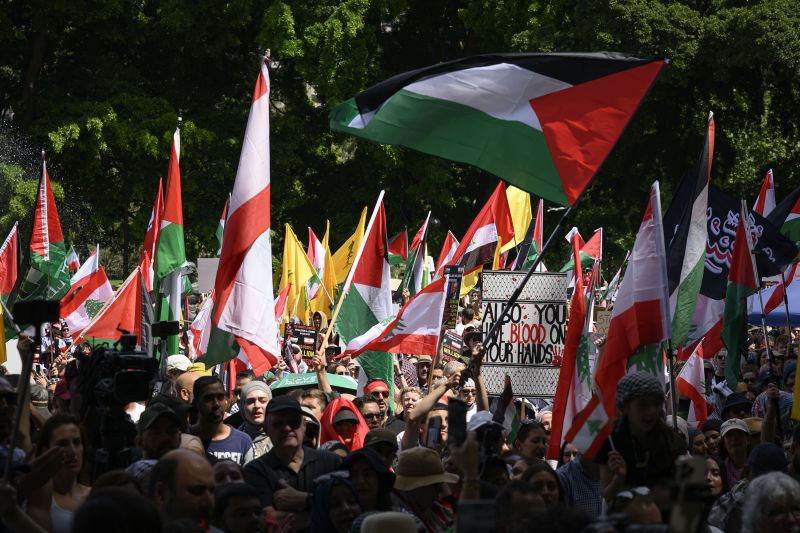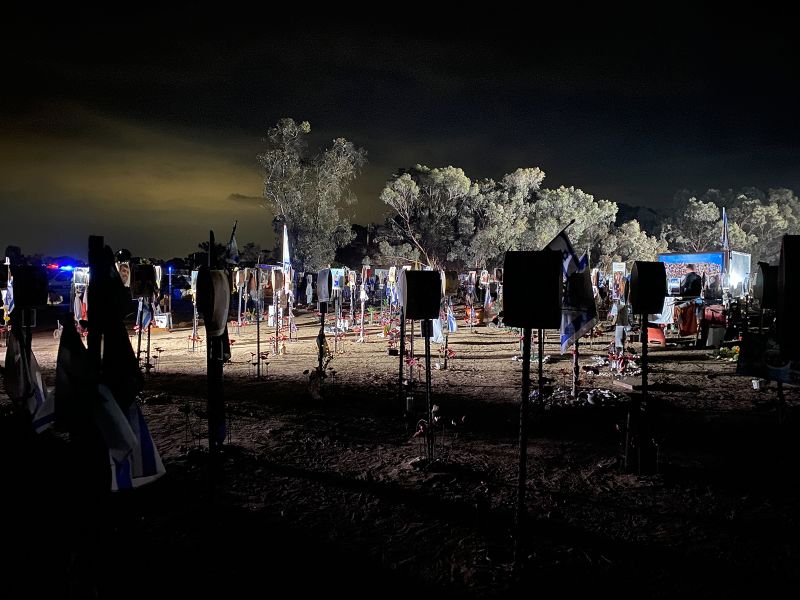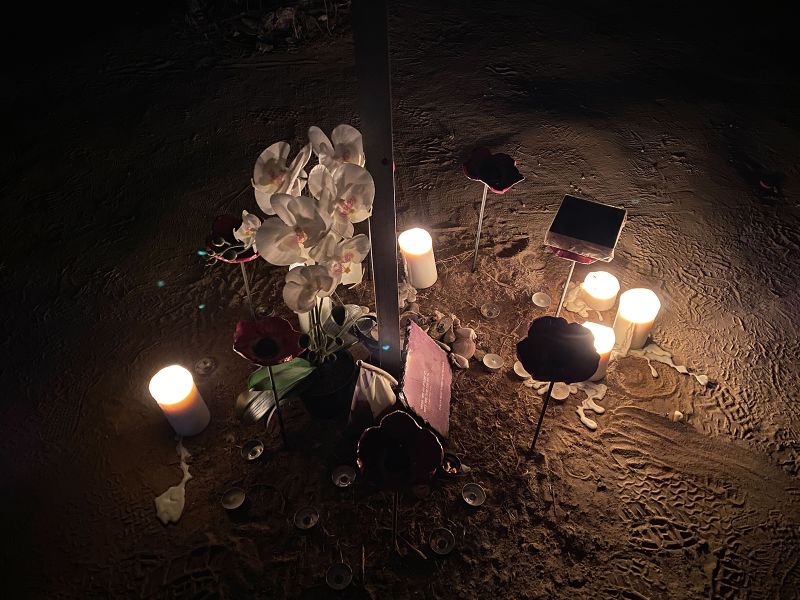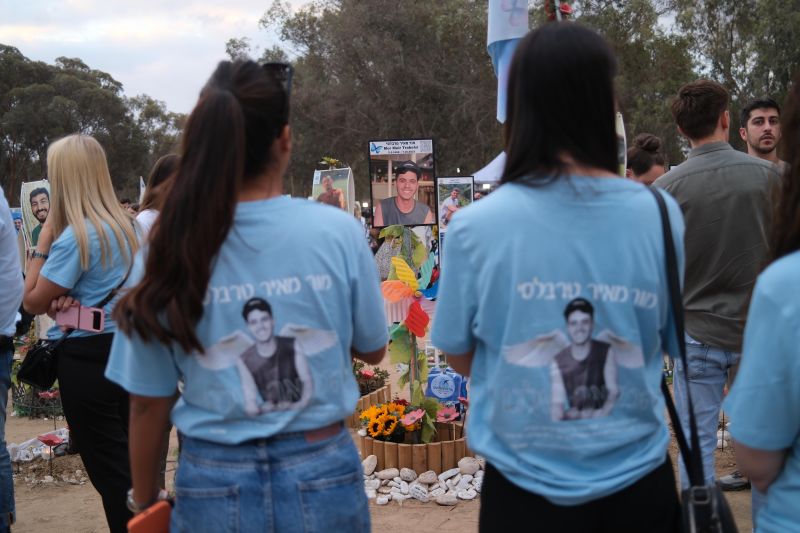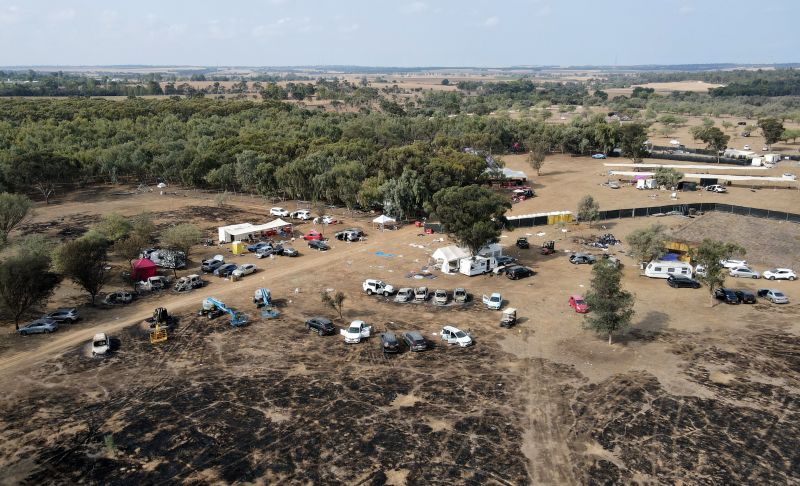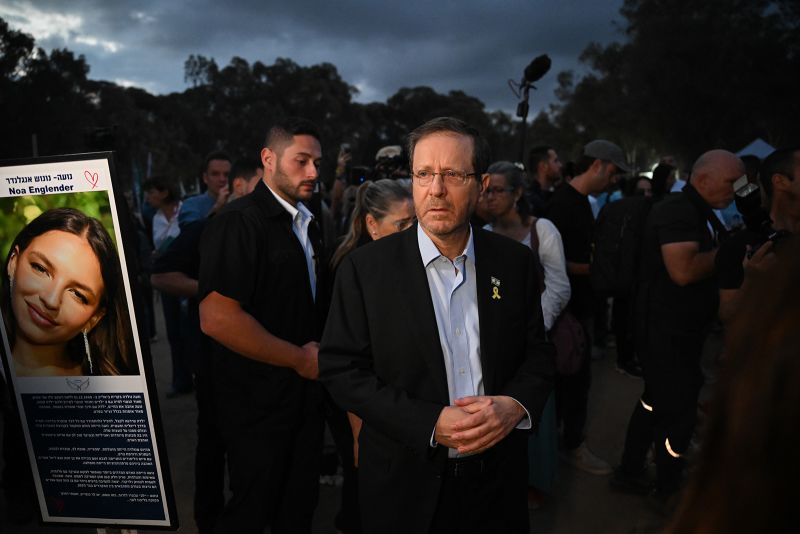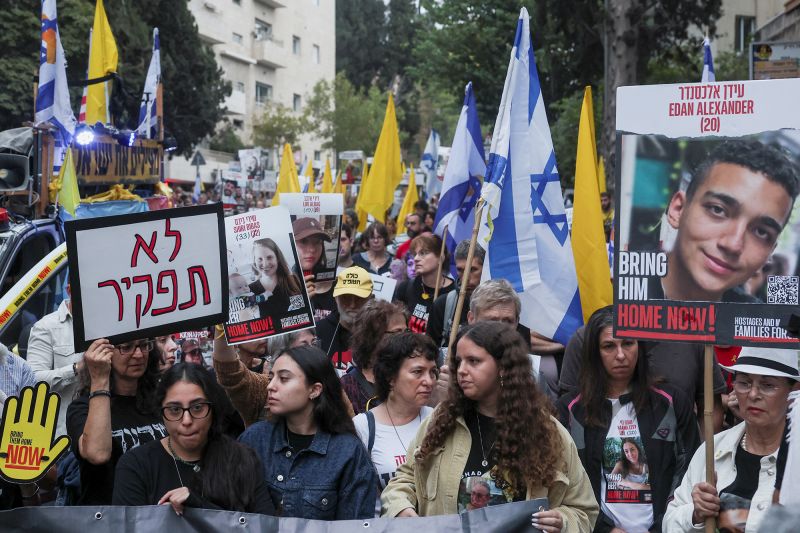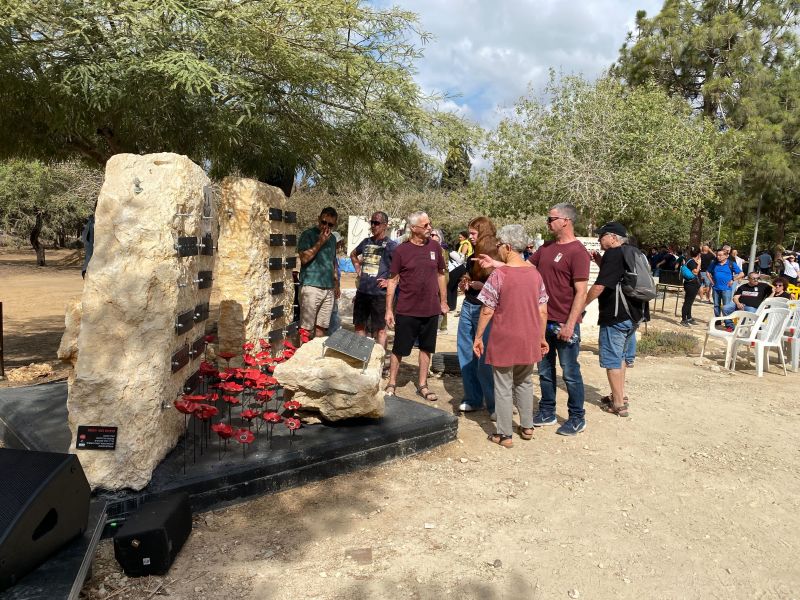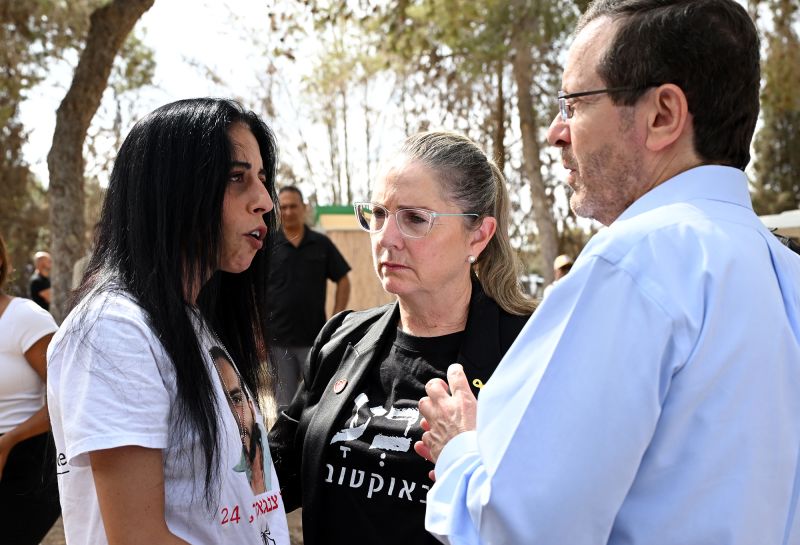Weekend demonstrations marked anniversary of October 7 attacks
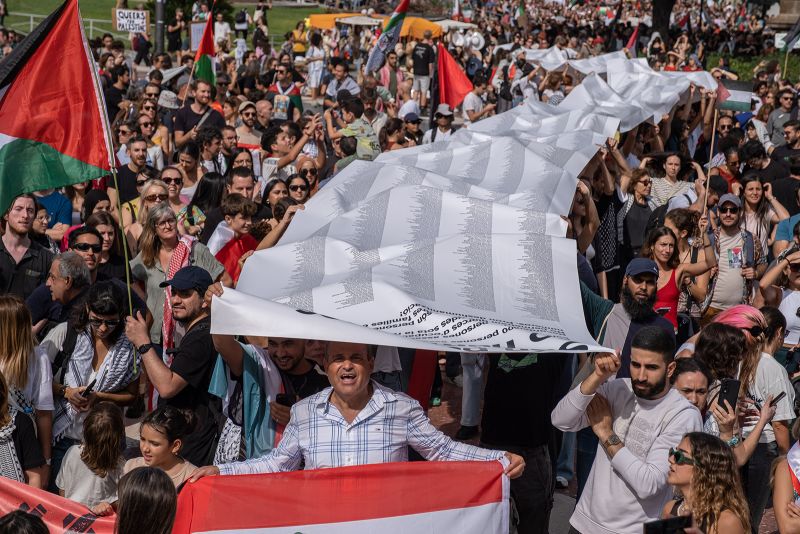
A long roll of paper containing the names of people killed in the Israeli occupation is seen carried by protesters in Plaza de Catalunya during the rally in Barcelona, Spain, on October 6.
There were demonstrations, marches and memorials across the world this weekend ahead of the anniversary of Hamas’ October 7 attacks on Israel.
Large crowds marched through the streets of Barcelona, Jakarta, Sydney, and other cities on Sunday, marking a year since the attacks, which killed around 1,200 people in Israel. Israel’s subsequent war in Gaza has killed more than 41,000 Palestinians, according to the health ministry there, and created a dire humanitarian crisis.
Miguel Verdugo, a 72-year-old protester in Barcelona, told Reuters: “We must express that we are against genocide. The least we should all do is protest in every capital city around the world.”
“Violence doesn’t happen in a vacuum. The occupation, the apartheid that has been going on in Israel of the Palestinian people, the siege of Gaza, the absolute illegal settlement, the brutality in the West Bank, it has to stop,” protester Sam Gazal told Reuters in Sydney.
There were tributes and memorials for the victims of the Hamas attacks in cities across the world.
Events were held in Berlin, Paris, London and Israel on Sunday, while the Pope led a prayer for peace at the Basilica of Saint Mary Major.
In Berlin, hundreds of people rallied under the slogan, “United against the crimes of Hamas against Israelis and Palestinians,” Reuters reported.
Rabbi Yehuda Teichtal spoke at the Berlin event, saying of the October 7 victims:
“We will never forget them. We stand together with them and we pray to God that the hostages will come home now,” according to Reuters.
In Tel Aviv, Thousands gathered for a vigil marking the anniversary, where loved ones mourned victims and survivors shared their stories. Protesters are urging Israel’s government to secure a deal to free the remaining hostages.
“We need them to come home”: mother of hostage urges for resolution
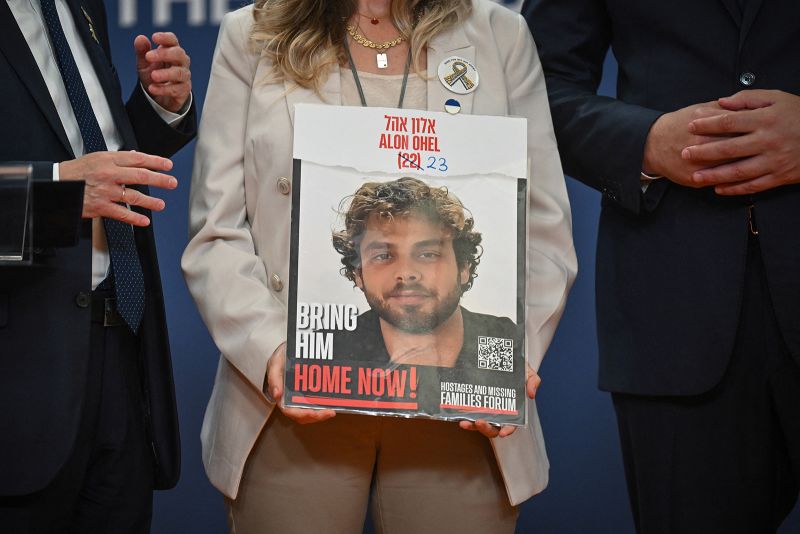
Idit Ohel, mother of Israeli-Serbian citizen Alon Ohel, who is being held hostage in Gaza by Hamas, holds the portrait of her son during a press conference in Belgrade, Serbia, on September 11.
Idit Ohel, mother of Israeli hostage Alon Ohel, said she was out walking the dog on the morning of October 7 when her family began to realize that something had happened at the Nova music festival.
At around 8 a.m. her son sent a message saying he was in a bomb shelter but was fine. A few hours later, they received a phone call saying he was sent to a hospital. But when her husband arrived there, they received news that Alon had been kidnapped alive and taken to Gaza.
Ohel told CNN’s Bianna Golodryga “what Hamas did is not human,” and urged governments around the world to help rescue hostages still held in Gaza.
“We need them to come home. We need everybody to be there for us and do everything in their power to bring them home.”
Ohel said her son “was the glue” that brought her family together, and said he loved music and playing the piano.
“Alon just went to the Nova festival, trying to have fun and was taken from Israeli land, and he did nothing wrong,” Ohel said. “And I say to everyone, to every mother, Alon is not just my son, he’s everyone’s son.
“He just loves life,” Ohel said of her son. “He came back home, a month and a half before he was kidnapped, from traveling over Asia. And in meeting people and finding interesting, different kinds of food.”
Heartbroken families recount horror of Nova festival attack on October 7 anniversary
The song that played as Hamas militants stormed the Nova music festival last year was replayed Monday during a memorial for those killed at the site in the October 7 attacks.
In an emotional moment for family and friends of those killed and kidnapped to Gaza, the track was played – and then stopped abruptly – at the same time as last year.
Many of those gathered at the memorial cried, hugged and comforted each other while recalling their loved ones’ final moments.
Israeli President Isaac Herzog attended the ceremony, speaking to families of those murdered here and walking through the memorial field.
The family of Gabriel Barel — his three brothers, mother and best friend — huddled around a portrait of Barel planted amid hundreds of similar memorials.
Barel was 22 when he was killed at the festival. For weeks after the massacre, his family didn’t know what happened to him. He was shot while driving away from the site and the car was subsequently burned, which made identifying his remains extremely difficult.
His brother Yeoda Barel said Gabriel was not meant to go to the party.
“He didn’t have a ticket, but he managed to sneak in and danced all night,” he said.
Yeoda said Gabriel left the festival shortly after the first rockets were fired from Gaza, when he got a call from his mother in the city of Ashkelon.
“She was on her own and was scared from the rockets, so he was going to go to her. He was concerned about her, not himself,” Yeoda, the youngest of Gabriel’s brothers, told CNN.
Yeoda and Gabriel’s best friend from the military, Noam, said he was a fun-loving guy, always surrounded by friends and saving up for a big trip to South America.
To pay tribute to Gabriel’s outgoing personality, the group gathered around his portrait and took a selfie, smiling for the camera.
"I miss him every day,” Yeoda said.
Israel’s kibbutz Be’eri became the symbol of Hamas’ brutality. Some survivors are determined to return
https://www.cnn.com/2024/10/06/world/israel-kibbutz-beeri-october-7-rebuild-intl-cmd/index.html
Scorch marks and bullet holes scar the battered walls of the Haran family home in kibbutz Be’eri. Its tiled roof has caved in, windows smashed, littering the floors with sharp shards of terracotta and glass – the debris, still untouched, of a day of horror for Israel.
“This house tells the story of Be’eri,” says Yarden Tzemach, a farmer and surviving resident of the kibbutz, one of the Israeli communities near Gaza that was overrun by Hamas militants last year.
“In this house, people were murdered. A family, including three children, were kidnapped from here,” he says.
Outside, beneath the fruit trees in the back yard, a toddler’s ride-on toy car, adorned with stickers of Winnie the Pooh, sits amid the rubble, a stark reminder of the lives shattered here.
In some neighborhoods of Be’eri, barely a building was left intact. More than 100 of its 1,100 residents were killed and another 30 abducted to Gaza on October 7.
Home after home was burned out or reduced to rubble and – a year on – many remain as poignant monuments to an ongoing trauma. At least 10 residents of the kibbutz, all friends and neighbors of each other, are among the more than 100 Israelis believed to still be held hostage.
Nearly 100 residents to have so far returned, with some working to bring kibbutz Be’eri, formerly a self-sustaining farming community, back to life.
































